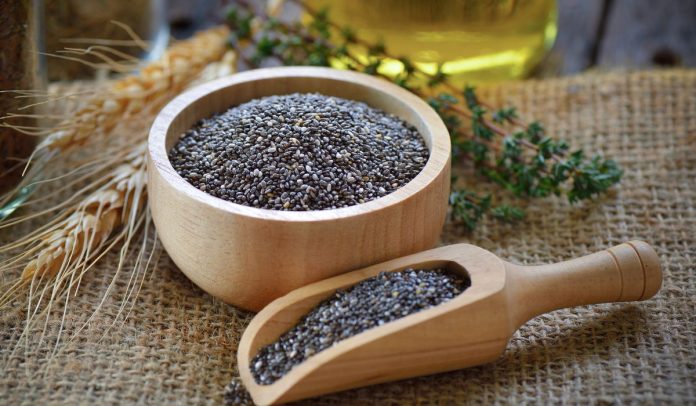Chia seeds are tiny black seeds that come from the chia plant, which is native to parts of Mexico and Guatemala. Despite their small size, chia seeds are packed with nutrients and have been associated with many health benefits. Here are 7 reasons why you should consider adding chia seeds to your diet.
1- They are loaded with nutrients
Chia seeds contain high amounts of fiber, protein, omega-3 fatty acids, magnesium, phosphorus, manganese and calcium. Just one ounce (28 grams) contains 11 grams of fiber, 4 grams of protein, 9 grams of fat and significant amounts of important minerals like calcium, magnesium, manganese, and phosphorus. In fact, chia seeds contain more calcium than milk by weight.
2- They are an excellent source of omega-3s
For a non-marine food, chia seeds contain remarkably high levels of omega-3 fatty acids. In fact, they contain more omega-3s than Atlantic salmon. Omega-3s are important for brain health and have anti-inflammatory effects in the body. The omega-3s in chia seeds have been linked to improvements in risk factors for heart disease and better brain function in animal studies.
3- They can improve exercise performance
Several studies have shown that chia seeds can enhance exercise performance, likely due to their fiber and omega-3 content. Eating chia seeds before a workout provides easily digested carbs and sustains energy levels for prolonged endurance. The fiber helps regulate digestion and nutrient absorption as well. Chia seeds are a great pre-workout snack.
4- They are high in antioxidants
The main antioxidant in chia seeds is chlorogenic acid, which has anti-inflammatory, antimicrobial and anticancer effects. Chia seeds also contain quercetin and kaempferol, flavonoids that act as powerful antioxidants to reduce inflammation and oxidative stress.
5- They can lower cholesterol
Chia seeds have been shown to significantly reduce triglycerides, total and LDL (bad) cholesterol while increasing HDL (good) cholesterol. Human and animal studies find that adding chia seeds to the diet improves cholesterol markers, lowering the risk for heart disease. The fiber and omega-3s in chia seeds work together to optimize cholesterol levels.
6- They are gluten-free
For those avoiding gluten or on a gluten-free diet, chia seeds make an excellent substitute for wheat-based products. They can be used to thicken sauces, added to baked goods for extra nutrition, and made into puddings. Chia seeds contain no gluten and do not trigger autoimmune reactions in people with celiac disease or gluten intolerance. They are very versatile in gluten-free cooking and baking.
7- They aid digestion and regulate blood sugar
The significant fiber content of chia seeds contributes to optimized digestion and intestinal health. Fiber feeds healthy gut bacteria and helps keep bowel movements regular. Additionally, the fiber slows digestion and controls blood sugar spikes after meals. Chia seeds may be beneficial for managing diabetes due to their ability to regulate blood sugar levels.
In summary, chia seeds provide protein, omega-3s, antioxidants, fiber, minerals and vitamins in a tiny package. Adding them to your diet can provide health benefits ranging from improved exercise endurance to lower cholesterol and blood sugar levels. Because they are so versatile, there are many easy ways to incorporate chia seeds into foods and recipes.


